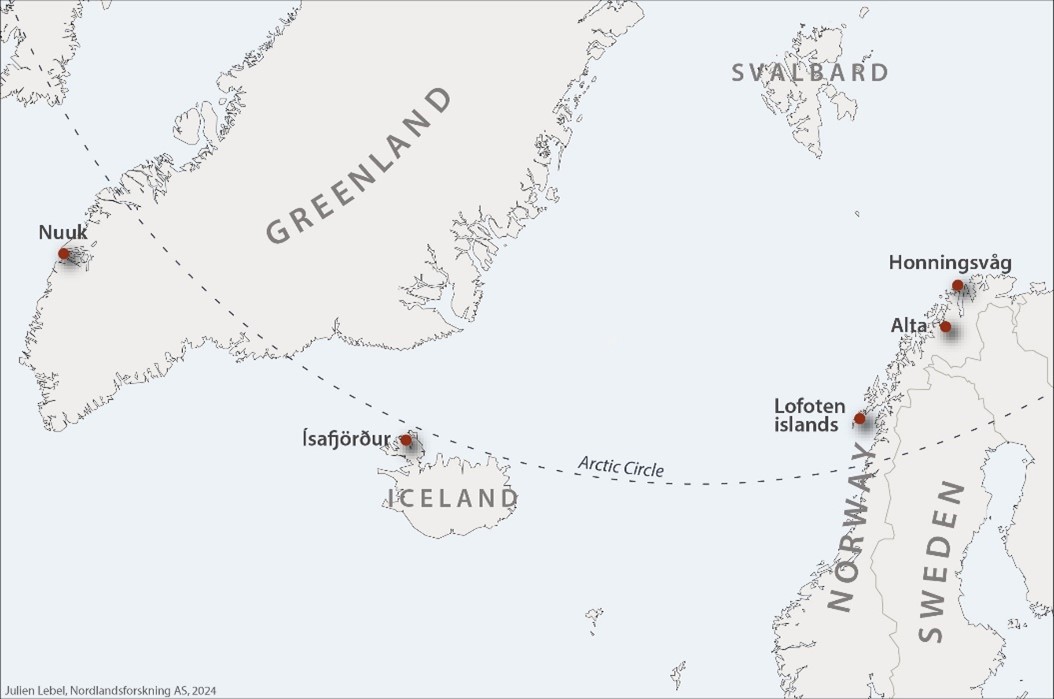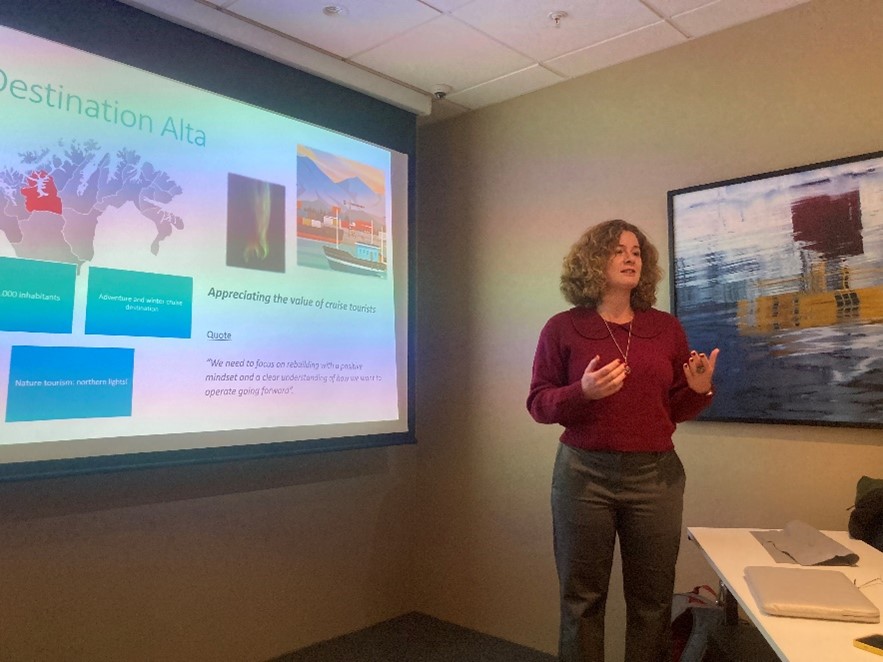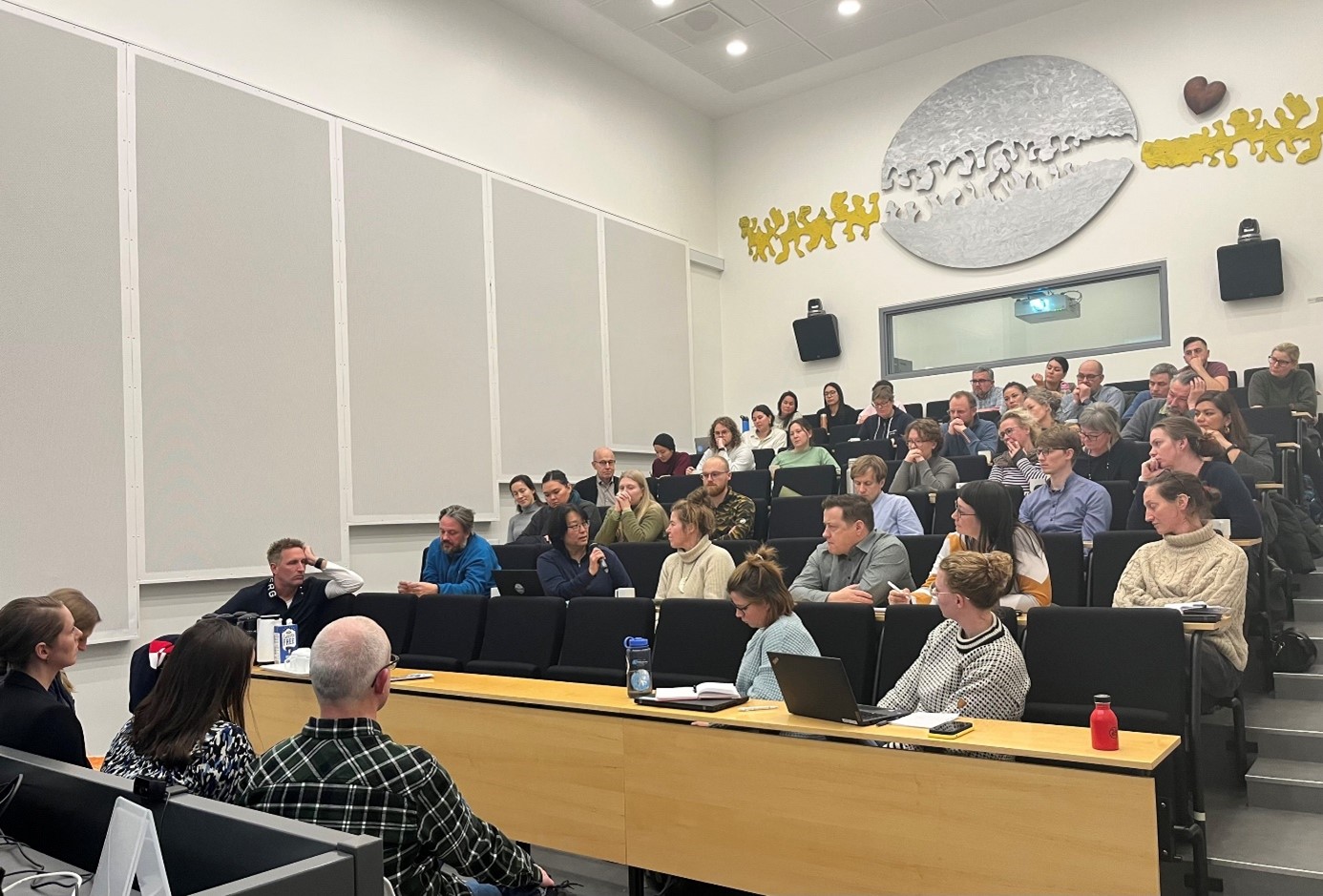By Julia Olsen, Associate Professor, Nord University,
with contributions from Hin Heemstra (Nord University), Carina Ren
(Aalborg University), and Ulrika Persson-Fischier (Uppsala University)
Many destinations in the Arctic are experiencing dramatic growth in the number of vessels and cruise passengers. The current trends indicate that cruise tourism is expected to keep increasing and exploring new destinations. We have examined how the Arctic communities learn to co-exist and address challenges and opportunities of this growth. We prioritize open dialogue with the communities and acknowledges the value of local knowledge, aiming to co-produce knowledge that can guide governance strategies for cruise tourism in the Arctic.
How do we account for the voices and knowledges of local populations and stakeholders, who first and foremost are exposed to the impacts from the cruise tourism industry? This question has been brought up several times during the work in the research project “Sustainable Arctic cruise communities: From practice to governance”. The project group has conducted a multiple case study investigation to understanding cruise practices in Norwegian, Greenlandic, and Icelandic communities shown in the map below.

Knowledge co-production, knowledge exchange, and social learning are emerging approaches aimed at ensuring that locally generated knowledge is acknowledged and relevant for decision-makers and tourism stakeholders. Increasing use of knowledge co-production facilitates meaningful engagement between researches and social actors and lead to democratization of knowledge that in turn lead to communities´ empowerment. An argument for this type of method development for sustainable tourism is that more conventional approaches risk being confined to the academic ivory tower rather than benefiting communities. To simply handing over reports of results at the end of a research project do not facilitate and support communities in what to do with the results. To overcome these challenges tourism research is now trying out co-production approaches that emphasize the importance of interactions both before and during the project process.
In applying this approach, we have identified several community-based practices that help to adopt and manage cruise development at the case destinations. These are: 1) governing the cruise traffic through a set of guidelines and regulations; 2) investing in new facilities and infrastructure to facilitate growth; 3) networking practices to facilitate better interaction and join responses between the relevant stakeholders; 4) building local competence and expertise for the personnel working with cruise passengers; and 5) innovating tourism products and services.

Despite the many advantages of co-production, there are also challenges. This relates to the necessity for continuing discussions on the sustainability of cruise development with the local communities and stakeholders even after the completion of the project. However, this is easier said than done, as researchers often go in and out of communities, merely producing a snapshot of knowledge. In addition, the researchers often cannot return to the case communities (especially after the project ends) to continue building social capital and trust. We have tried to overcome some of these challenges by being clear about our intensions vis-a-vis the communities, keeping a transparent dialogue with the communities, acknowledging the limited period of engagements, and share the possible project outcomes and opportunities (and limitations) for future cooperation.
The project will be finalised before the Summer 2024. You can read more about our project here:
Sustainable Arctic Cruise Communities – From practice to governance (nord.no)

Julia Olsen is an associate professor in environmental sociology at Nord University. Her primary research areas are socio-economic adaptation to multiple changes in the Arctic, ocean sustainability, marine litter, shipping and tourism development in the High North. She is also the coordinator of the Arctic research group at Nord.